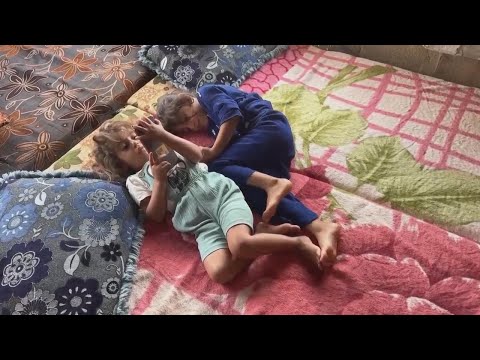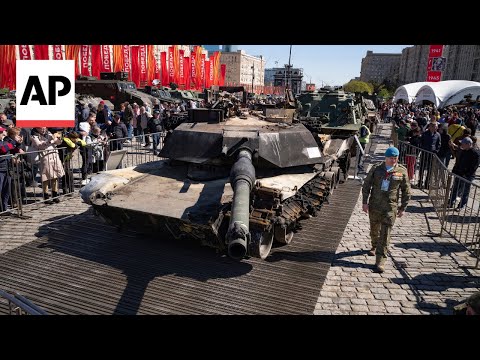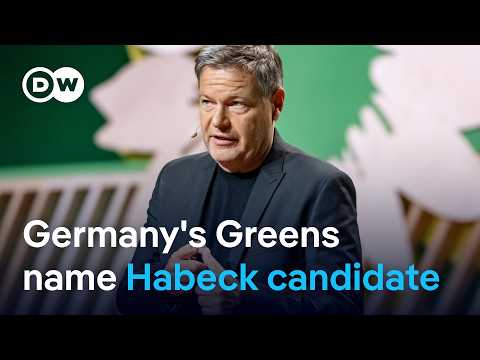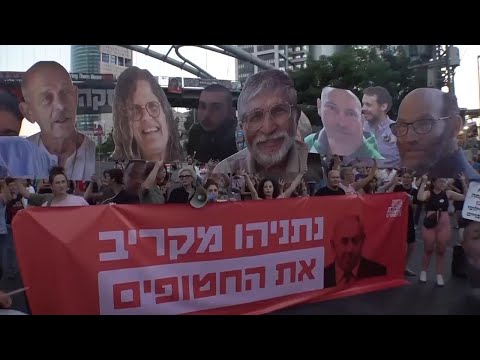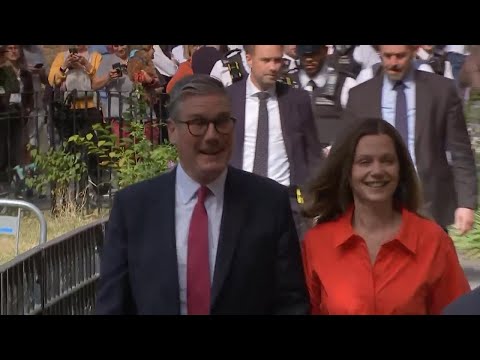(5 Sep 2024)
LEBANON SYRIAN REFUGEES
SOURCE: ASSOCIATED PRESS
RESTRICTION SUMMARY:
LENGTH: 4:01
ASSOCIATED PRESS
Marjayoun, Lebanon – 1 September 2024
1. Syrian farmers working in the Marjayoun plain, with Israeli Metula town visible in the background
2. Various of farmers at work
3. Marj El-Khokh informal camp for displaced Syrians
4. UNIFIL vehicle passing by while children play outside the camp
5. Shelter at camp
6. Various of children looking at mobile phone inside their tent
7. Various of woman cooking in the camp
8. SOUNDBITE (Arabic) Rahaf Al-Osman, Syrian refugee:
"We were displaced from Syria in 2011 due to the worsening situation; war and bombing. We came here seeking safety and started working in agriculture to feed our children and build a future. But, we (started) facing shelling, war, and the constant noise of jets. (Israeli) warplanes (often) break the sound barrier. The children are traumatized. Some children lost many things, their dreams and education are shattered."
9. Close-up of hands
10. SOUNDBITE (Arabic) Rahaf Al-Osman, Syrian refugee:
"We work in agriculture near the border with Israel. We can see them (Israelis), and they can see us. Sometimes, they (Israelis) strike the children, those aged 10 – 13. Parents risking their children to provide for basic necessities like bread."
11. Various of children playing
12. Various of a man grinding coffee beans in traditional tool
15. SOUNDBITE (Arabic) Nasr Al-Salloum, Syrian refugee:
"We have endured a year of bombardment. Our situation mirrors the country’s tragic state. There is nothing in this country—no jobs, no work. The labor force has ceased, and aid has stopped. The United Nations’ assistance is negligible; they (UNHCR) provide us with $100 a month, which is insufficient for us and our children."
16. Close-up of a chaplet in hand
17. SOUNDBITE (Arabic) Nasr Al-Salloum, Syrian refugee:
"Here around us, there has been shelling in the area, affecting people who have fled the bombing. Our situation is hopeless. Only God can help us with the cost of living. We are selling some of our belongings to survive. I used to have around 60-70 sheep, but I have started selling them to support my children."
18. Arabic coffee pot with cups
19. SOUNDBITE (Arabic) Nasr Al-Salloum, Syrian refugee:
"We have been asked many times why we don’t return to our country. If Syria were safe, we would go back. Each of us has homes, property, and livelihoods there, but it is not safe. Our country is like the south (of Lebanon), but even worse. Most areas are controlled by armed groups, with ongoing resistance, fighting, and death. People are fleeing to escape death and to keep their children safe."
20. Girl holding her baby brother outside their tent
21. Children on the top of a tent
22. Flock of goats
STORYLINE:
The situation for Syrian refugees in southern Lebanon has become increasingly desperate as the conflict between Hezbollah militants and Israel escalates.
Many Syrians who fled their country’s civil war have been living in southern Lebanon, primarily working in agriculture.
However, they now find themselves caught in the crossfire in areas along the Israeli border.
In the Marj El-Khokh informal camp near Marjayoun, Syrian refugees like Rahaf Al-Osman and Nasr Al-Salloum face the grim prospect of being displaced yet again.
Al-Osman, originally from the Homs countryside, fled to southern Lebanon in 2011.
She had hoped that Marj El-Khokh would be a safe place to work in agriculture and provide for her children’s future.
Find out more about AP Archive: http://www.aparchive.com/HowWeWork
Twitter: https://twitter.com/AP_Archive
Facebook: https://www.facebook.com/APArchives
Instagram: https://www.instagram.com/APNews/
You can license this story through AP Archive: http://www.aparchive.com/metadata/youtube/7c72cb5258f44a50ac4155eaf894c3ae
Author: AP Archive
Go to Source
News post in September 10, 2024, 3:04 pm.
Visit Our Sponsor’s:
News Post In – News

